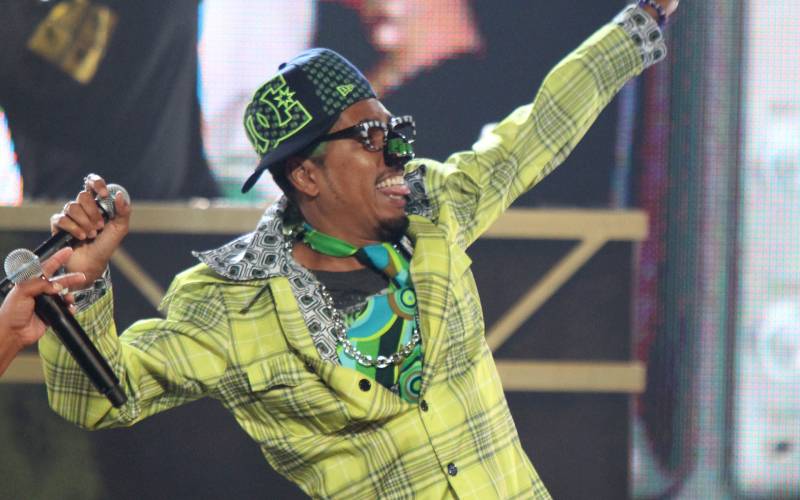As you read this, local social media pages have been filling up with heartfelt tributes and remembrances of Shock, who passed away of unknown causes on April 22 at age 57. (He died in Tampa, Florida, the city where the New York native spent his adolescence and young adulthood before relocating to Oakland.) People have shared stories about buying early cassettes from the artist, real name Gregory Jacobs, on Telegraph Avenue, and discoursing about film, art, and food on tour buses. One story finds him randomly showing up at Albany’s Ivy Room to rock an impromptu 15-minute freestyle, rapping through headphones to Brick’s “Dazz.” There are many other stories circulating about this hip-hop legend, a man who came along at a time when Bay Area hip-hop was beginning to heft national gravitas and helped push it over the hump. His contributions to local music culture remain truly significant.
Funny and provocative, Shock allegedly “once got busy in a Burger King bathroom.” But he also put Tupac, Saafir and Mystic on and produced Pac’s “So Many Tears,” “Rebel of the Underground,” and “Changes.” Inspired by Parliament-Funkadelic, Shock dubbed his erstwhile bandmates “Sons of the P” and revived the conceptual approach that separated George Clinton’s groups from the rest of the funkateers, creating urban mythos around aphrodisiac pills and full-body condoms. Underrated as a rapper, he nevertheless contributed a deceptively-smooth verse to perhaps the Bay Area-est rap song of all time, the remix of the Luniz’ “I Got Five On It.” Shock held his ground alongside Yukmouth, Numskull, E-40, Dru Down, Spice-1 and Richie Rich. The half-rapped, half-sung lyrics sum up his ethos: “still bringing satin for them drawers, velvet for the mic, and a pound for the cause.”


